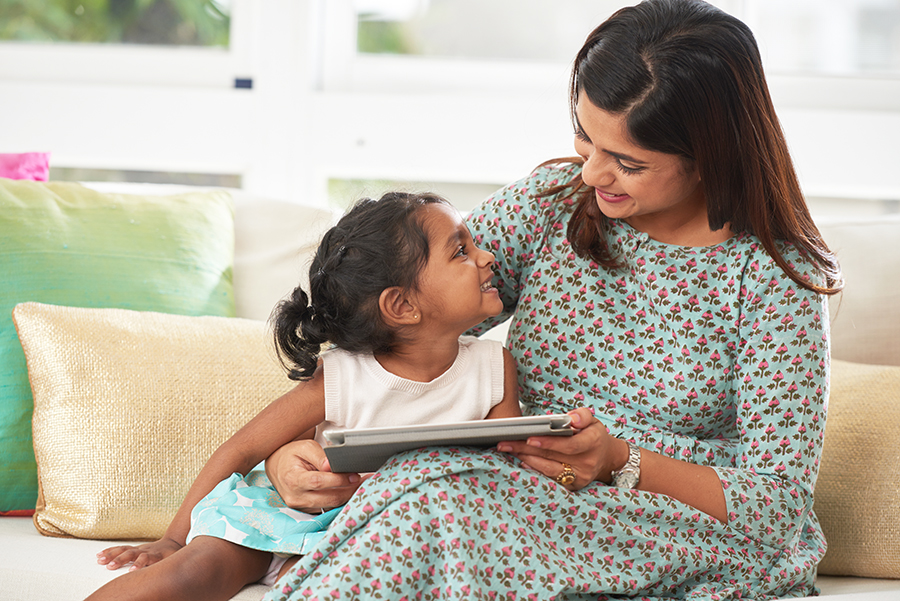The Effects of Screen Time on Young Children
Please note that this article discusses young children using devices for the purpose of pleasure (e.g., watching videos, playing video games) and is not about children who use devices for the purpose of communication (i.e., Augmentative and Alternative Communication).

Nowadays screens are all around us! Children are often happy and quiet when they have a device in their hands (*sigh* peace and quiet). However, we know that children do not learn best from screens [1]. Two new studies have gone further to show that screen time can decrease the words and sentences that toddlers use, resulting in delayed language development.
How does screen time impact language development?
A new study from the Hospital for Sick Children in Canada followed almost 900 young children between six months and two years of age [2]. They found that the toddlers who were exposed to more handheld screen time were more likely to have delayed expressive language skills (i.e., the child’s ability to say words and sentences was delayed). They also found that for every 30-minute increase in daily handheld screen time, there was a 49% increased risk of expressive language delay!
Another study surveyed over 1,000 parents of children under the age of two [3]. They found that toddlers who watched more videos said fewer words. For each additional hour of videos that eight- to 16-month-old infants watched in a day, they said an average of six to eight fewer words!
These new studies show that increased screen time places infants at risk for expressive language delays and can result in young children saying fewer words.
How much is too much?
The Canadian Pediatric Society recommends that:
| Infants and toddlers (under 2 years) | Have no screen time |
|---|---|
| Children 2-5 years | Have limited screen time – under one hour per day |
The American Academy of Pediatrics goes on to recommend that parents of two- to five-year-old children:
- select high-quality programs
- watch videos with their child
- talk with their child while watching videos
- connect what their child sees to their everyday experiences [5]
What children watch (i.e., the quality of the show) and how they watch it (i.e., while interacting with you vs. alone) could be even more important than how much two- to five-year-old children watch (1).
Realistically speaking…
We know that children don’t learn best from screens and too much screen time can negatively impact development, but what does this realistically mean for your child’s screen time?
Screen time for infants is not recommended. This recommendation makes sense considering the studies mentioned earlier that showed that infants with more screen time had delayed expressive language skills.
Most parents of preschoolers report that having their child watch a video or play a video game allows them to get something done or have a well-deserved break. While it’s clear that screen time will not promote your child’s development, if you allow it occasionally, it can help you get through a busy day. Whenever possible, when your child watches a show on your phone or tablet, talk about it or even re-enact it together!
The bottom line
We know that screen time does not promote your child’s language development. Infants shouldn’t have any screen time, but two- to five-year-old children can use devices for very limited amounts of time.
We also know that the best way to help your child learn and grow is to interact with her! Have fun in your everyday interactions, like bath time, meal time or when you’re walking to the park! That’s where the best language learning takes place.
Similar articles by tag:
Language Development | Language Delay | Interaction | Screen Time | Children | Electronics | Infants | Technology
